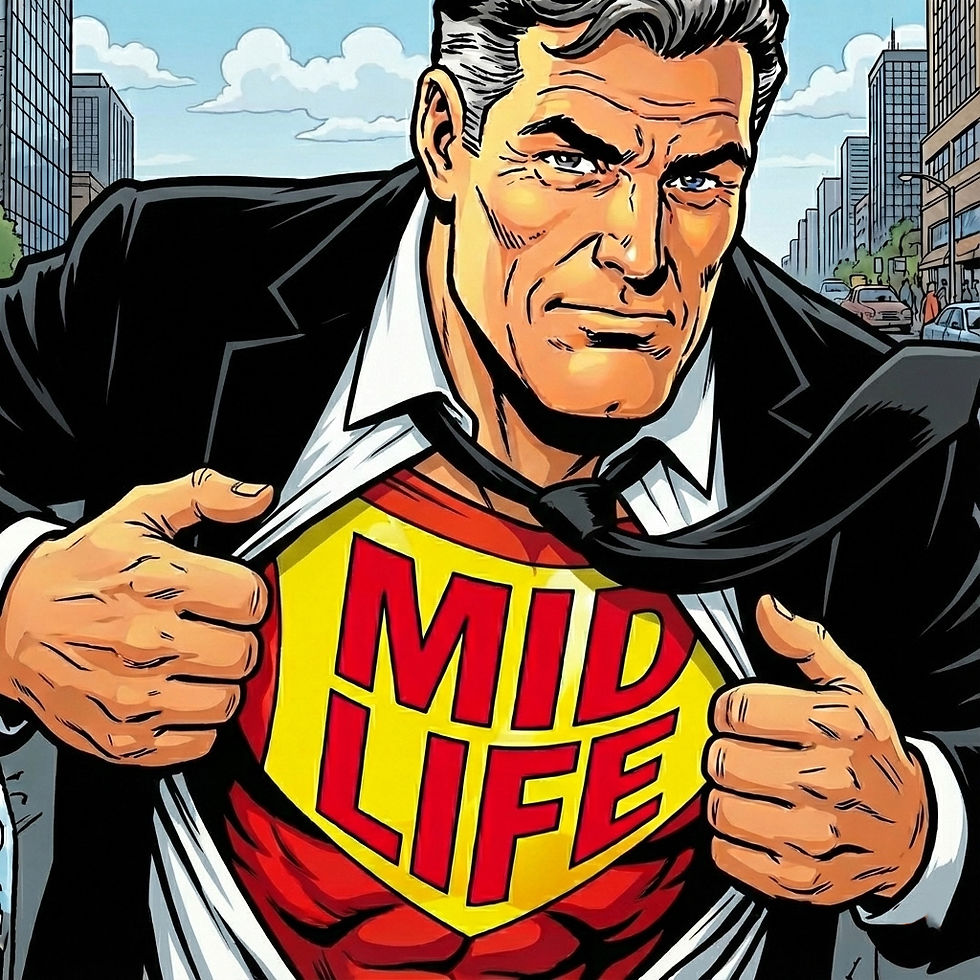Drowning in Data, Starving for Focus
- Neil Moore
- Sep 9, 2025
- 3 min read

In the time it takes you to scroll your phone before bed, you’ve likely absorbed more information than your great-grandparents did in a week. I caught myself doing it just last night – promising I’d skim a headline or two, and 45 minutes later I was still doomscrolling through articles I could barely remember.
But how much of this sticks? Or are we simply frying our mental circuits?
We live in an age of overload. On average, we spend 11 to 13 hours a day with digital media: social feeds, YouTube, Netflix, email, even “old school” cable TV or print. Compare that to the early 1900s, when information came in digestible doses: a newspaper, a book chapter, or a letter. People had space to reflect and remember. Today, the firehose never shuts off.
Your Brain’s Overworked Librarian
At the center of the storm is your hippocampus, the brain’s librarian. It sorts and files experiences into memory. But like any librarian, it has limits.
Flood it with fragmented content – breaking news, cat videos, TikTok trends – and it can’t decide what’s worth shelving. Neuroscientists call this cognitive overload. Instead of building long-term memories, your brain drowns in static.
I’ve felt it myself: when I bounce from semi-productive email over to YouTube in the span of minutes – there's always something more interesting in the right margin. But the next day I can’t recall a single thing I consumed. Just a blur of tabs.
Then vs. Now: Information Overload
A century ago, scarcity shaped learning. People read deeply, thought carefully, and engaged in long conversations. That slower rhythm strengthened memory.
Today, most of us skim and scroll. We multitask – dinner in one hand, phone in the other – and absorb content passively. This shallow processing makes it harder to retain anything meaningful or judge what matters.
Faster Than Google: The AI Flood
If Google cracked open the firehose of information, AI has torn the nozzle off. Within a few keystrokes, you can summon not just facts but full explanations, comparisons, or even draft reports. All of which accelerates the problem. We’re not just overwhelmed by more data, but by data delivered instantly, before our brains can pause and decide if it matters. The challenge now isn’t access; it’s discernment.
The Cost of Constant Plug-In
The toll is real: mental fatigue, shorter attention spans, and higher stress. The old Microsoft study about our “eight-second goldfish attention span” may be shaky, but newer research is sobering. UC Irvine’s Gloria Mark found our focus on a single screen now lasts just 47 seconds – down from 75 seconds in 2012 and two-and-a-half minutes in 2004. Not exactly ideal for people whose jobs depend on thinking clearly.
Reclaiming Your Focus
The fix isn’t to swear off screens, but to use them wisely. Practice mindful consumption: limit screen time, seek high-quality content, and take breaks. Read a book. Journal. Give your brain the deep-work reps it craves. Most importantly, resist the lure of multitasking, your mind isn’t built to juggle 20 tabs at once. (Incidentally, Deep Work is a book title by Cal Newport, and is worth the read!)
For me, reading a few pages of an actual book before bed has been a reset button. I remember it better, and I sleep calmer.
The Real Superpower
In a world drowning in information, the rare skill isn’t to absorb more – it’s to choose less. The real edge in 2025 isn’t faster tech or smarter feeds. It’s the ability to step back, slow down, and give your mind the breathing room it was designed for.
Every message has two jobs: get noticed and get remembered. That’s where I come in – helping businesses turn everyday communication into something clear, compelling, and built to last. If you’re ready to sharpen your story, let’s talk.
Neil Moore is a communications specialist, freelance journalist, masters athlete, and family man who believes that excellence has no expiry date.
Statements made on this website have not been evaluated by any regulatory agency or body. The information and opinions provided by this website is information obtained by and the opinion of Neil Moore and in the case of health and wellness subjects is not a substitute for the direct, individual medical treatment or advice provided to you by a healthcare provider. As well, the products or procedures mentioned on this website are not intended to diagnose, treat, cure, or prevent any disease. It is the responsibility of you and your healthcare providers to make all decisions regarding your health.
NeilMoore.ca recommends that any decision with respect to your health and wellness or the diagnosis and treatment of any disease or condition is a decision made in consultation with your healthcare provider. Please also review the Terms and Conditions of NeilMoore.ca with respect to this website not providing professional or specialist advice.






Comments